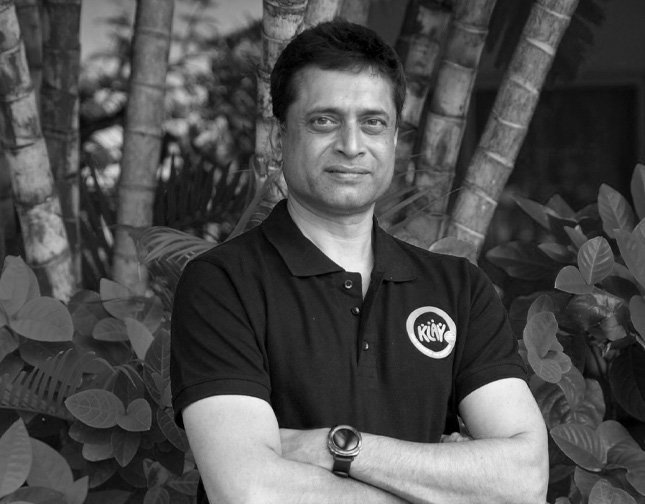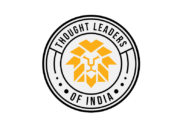Srikant AK
AK Srikanthis a seasoned professional with over two and a half decades of experience in diverse geographies and industries. His career has seen him work with major corporations such as Nestle, the Cleveland Clinic, and the OCS Group in India, the Americas and Africa. Srikanth moved to Founding Years Learning Solutions Pvt Ltd which operates India’s largest preschool chain under the brand name of KLAY (www.klayschools.com)in 2017, taking on the role of a COO in charge of the growth of the network across India.In 2020, he was promoted as the CEO for Founding Years Learning Solutions Pvt Ltd, Srikanth is anEngineer from the Birla Institute of Technology & Science (BITS) Pilani, andholds an MBA from the Case Western Reserve University, Cleveland, USA, where he was a WeatherheadScholarship recipient. He is married to Savitha Sastry, the eminent Bharatanatyam dancer(www.savithasastry.com). Outside of work, Srikanth has a passion for classical arts, and has written and directed several award winning dance productions.

Our Exclusive Interview:
1. What does Leadership mean to you?
Let me start by the textbook definition – Forbes claims it is the process of social influence, that maximises the efforts of others to the achievement of a goal. While it is a good definition, in my view leadership is also about managing non-human resources, it is about the ability to predict the future by processing variables of the present, and it is the ability to make sustainable decisions with resources, people and the future – decisions that are backed with a road map of how to achieve them. Influencing a set of people to walk on the road map is probably second last in the list – the last being constantly reviewing whether the path taken is going in the direction of the goal.
2. How do you keep your team motivated?
Fundamentally by the principles of democracy. My team is usually well appraised on what the goal is, why we are reaching out to it, and what each team member’s role is in the process. This, I feel, eliminates ambiguity and insecurity and instills transparency throughout the system, with clear accountabilities and powers. But it’s also not all work and no play – as a team we engage with each other over informal get-togethers very regularly. Therefore what exists as a team is very connected – at work and outside of it.
3. It is said that a leader is as good or as bad as his/ her team. Do you agree? Why?
That kind of suggests that a bad leader cannot have a good team, or vice versa, so while I admit that statement may sometimes be true, I do not subscribe to the view that it is always true. I think the outcomes are decided by whether you have a good team and a good leader – and to realize a goal you need a good team, led by a good leader. However, being burdened with a bad team does not make the leader incapable. Nor does having a good team guarantee success as the thought leadership comes from the leader.
4.How would you describe your leadership style?
In a word, I would call it inclusive. I have regular meetings with my team where we cover all the routine projects – these are meetings where the team can speak their mind with no reason to have any consequences. But outside of these meetings, while I am always there to help, I do not breath down their necks – the idea is to have an empowered team.
5. Have you struggled with work-life balance? How did you handle it? How do you handle it even now?
I used to struggle with this – when I was younger. I think over the years I have managed to not only achieve a good work life balance, but have also made it an integral part of my company’s DNA. I usually handle this by making a part of this systemic – our HR manuals carry some do’s and don’ts very clearly spelt out with regard to time on the job and time off it. In fact, work life balance is a topic that is addressed even in the orientation of new hires. On a personal level, I think I ensure that I have time every week that is devoted to my family and to the pursuits of my own hobbies. I maintain these as strictly as I maintain office protocols.
6. How do you define your vision for your organisation?
My vision for KLAY schools is that it shall be not just the center of excellence amongst schools for early childhood, but would also be the thought leader for Early Childhood Education in India. That we shall meet revenue and profitability goals would be a consequence of this position.
7. What matters to you the most – loyalty of your employees or loyalty to your customers/ clients?
For me, it would be the loyalty of my employees. The loyalty of customers would be a consequence of my employee performance – and if I have dedicated and loyal employees they are the surest way of having satisfied clients.
8. How important is intellectual exchange for you? How do you seek it, and where?
It is extremely important. The intellectual development of any human is a result of a stream of ideas – which can occur only through exchange. Without the exchange there would be no stream – only a pond – and that will become irrelevant over time. I seek it through various forums I am a member of – much like this one. I am also an active alumni member of my colleges – an invaluable resource for both insights from leaders and meeting fresh and talented young people.
Know the Person
- Money to you is essential, but not an end in itself.
- Your favourite film is Bridge on the River Kwai.
- Your favourite food is vegetarian, South Indian home-cooked.
- Your favourite film star (male) is Amitabh Bachchan
- Your favourite film star (female) is Naomi Watts
- Your favourite holiday destination is Goa
- Friendship to you is Godliness
- The person you admire the most is Prof John Nash
- Your dream is to travel to Antarctica
- Your best-kept secret is so well kept I can’t reveal it here!
